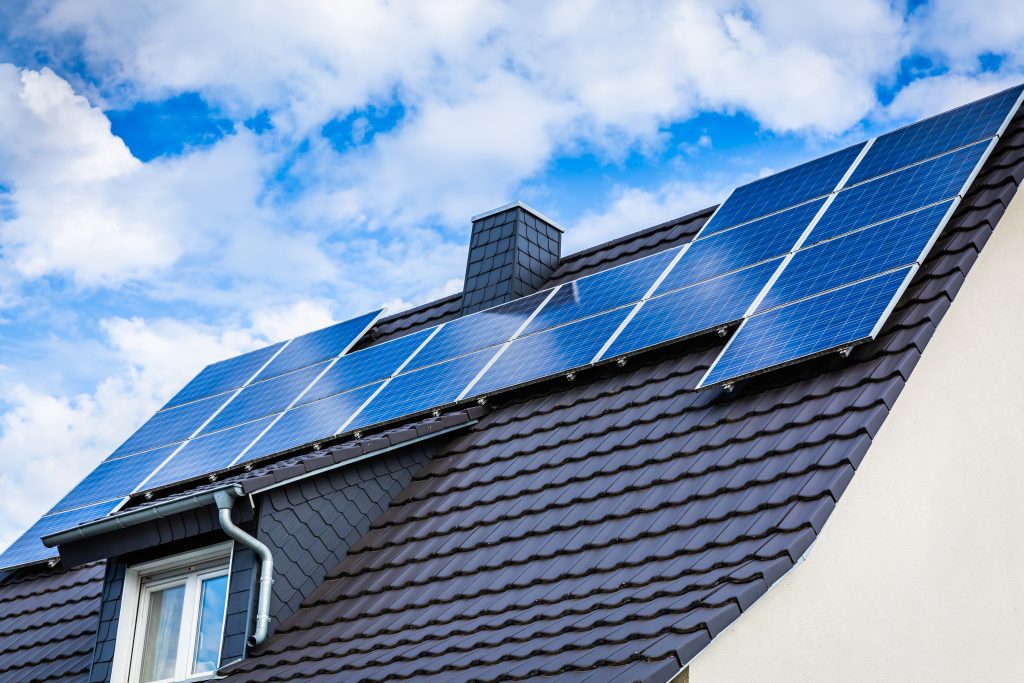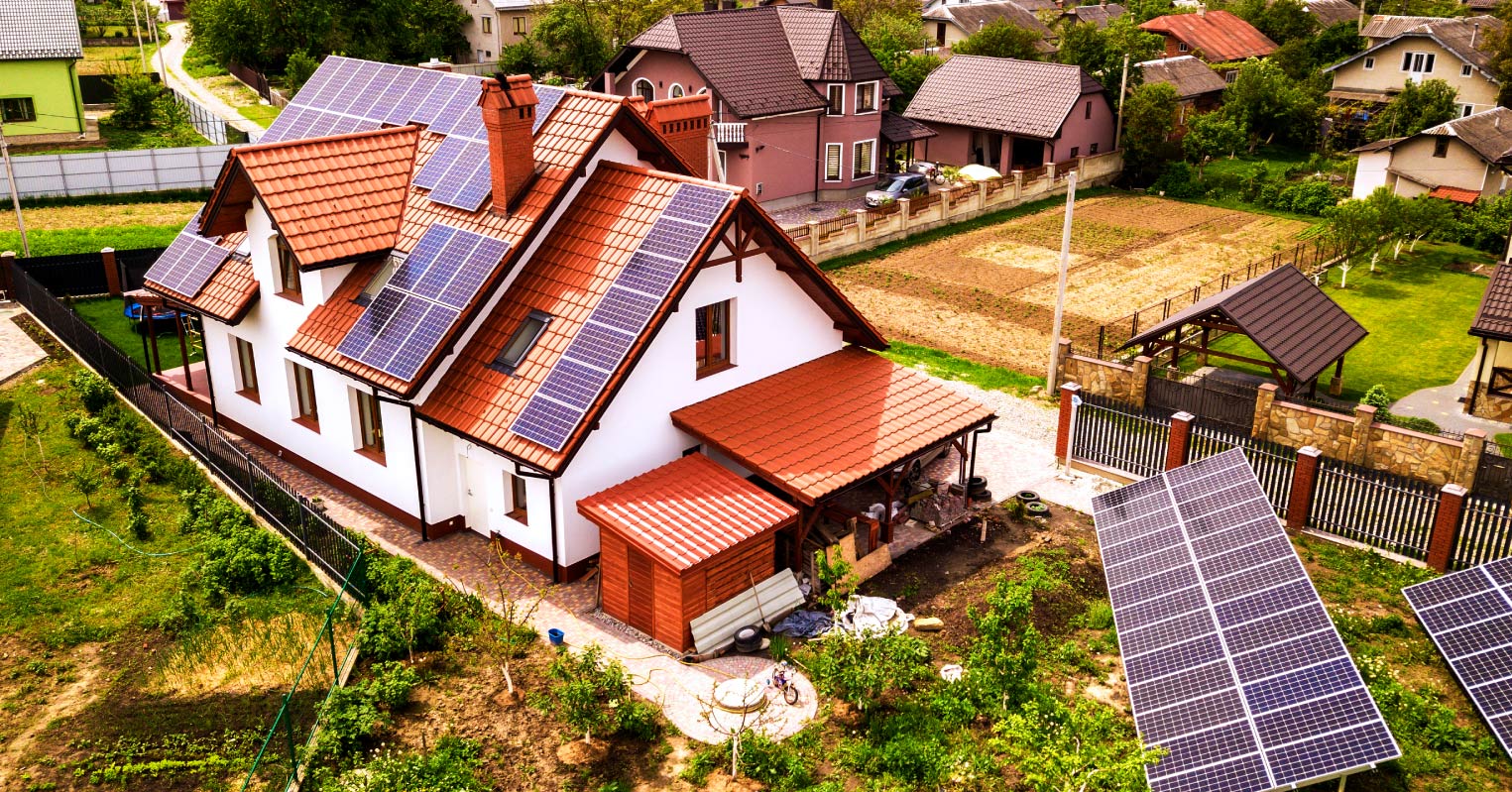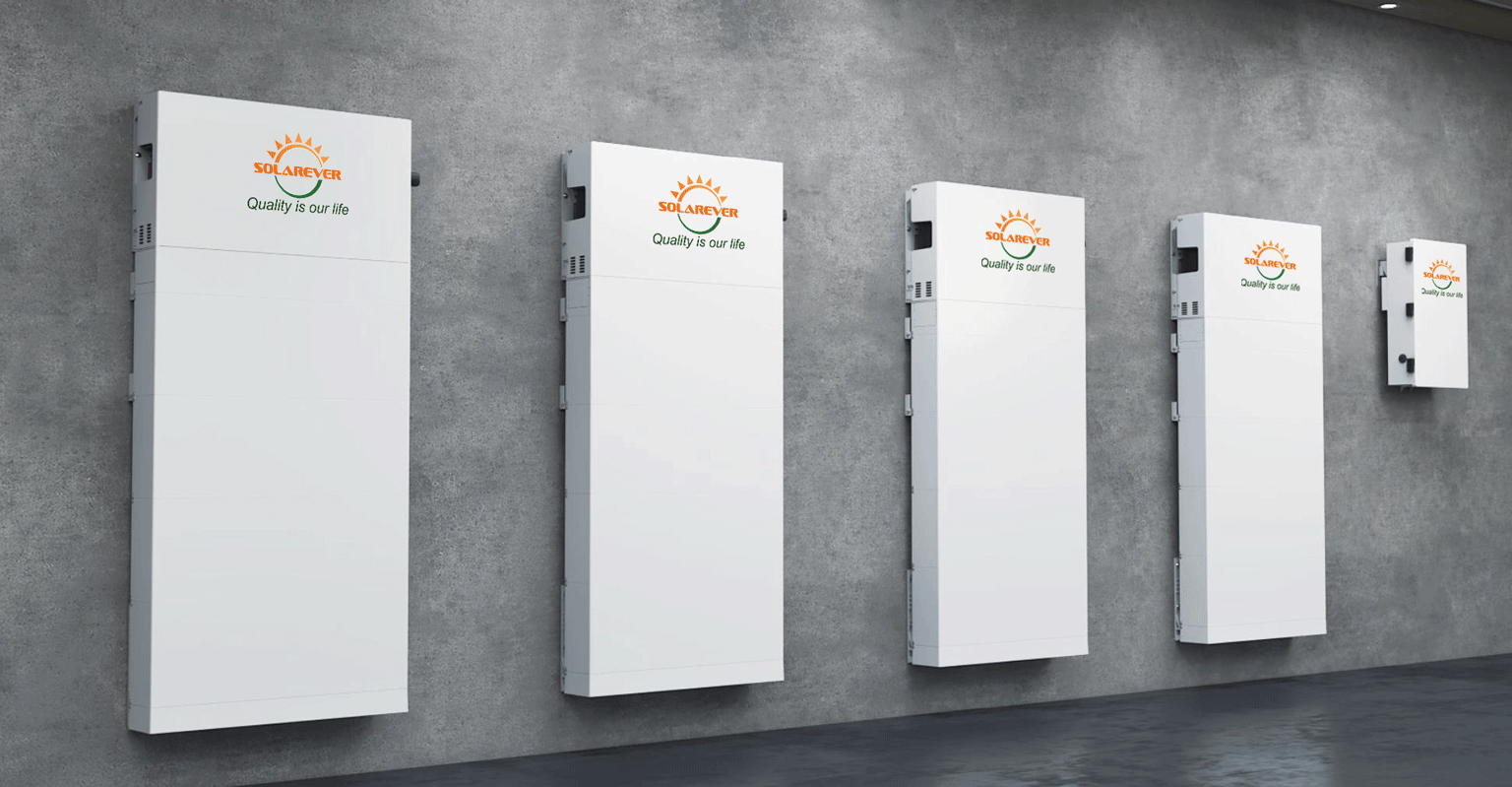How Solar Storage Batteries are Changing the Game for Homeowners
Solar energy provides a clean and renewable alternative to grid electricity, which by and large comes from nonrenewable sources in the US. According to the North American Electric Reliability Corp (NERC), more than 50% of the US could face electricity shortages this winter. By harnessing the power of the sun, households can minimize their reliance on traditional electricity sources, decreasing their carbon emissions. Additionally, solar energy can provide a reliable energy source in remote areas where grid electricity is not readily available.
Solar panels are great on their own, but solar batteries help give households relying on solar power an extra sense of security and less reliance on the grid. Solar batteries allow for the storage of excess solar energy for use during periods of low sunlight or power outages. This reduces the need to rely on fossil fuels as a backup energy source, further decreasing the overall carbon footprint. By storing surplus power, solar batteries also enable households to maximize their energy independence and save on electricity costs.
Solar Energy Systems for Homes
As the demand for renewable energy continues to grow, residential solar is becoming an increasingly popular option for homeowners. Solar storage batteries play a crucial role in enhancing energy independence by allowing homeowners to store surplus power generated by their solar panels. In addition to providing energy savings, these batteries also offer grid relief during peak times, reducing the strain on the overall energy infrastructure. From a financial standpoint, homeowners can potentially earn money by selling excess energy back to the grid, while also contributing to a more sustainable household.
Overview of solar panels and their benefits
Solar panels come in a variety of types, including monocrystalline, polycrystalline, and thin-film. Monocrystalline panels are known for their high efficiency and durability, making them a popular choice for residential use. Polycrystalline panels are slightly less efficient than monocrystalline, but they are also more affordable. Thin-film panels are the least efficient of the three, but they are lightweight and flexible, allowing for more versatile installation options.
Solar panels harness solar energy through the photovoltaic effect, where sunlight is converted into electricity. This process has minimal environmental impact, as solar power does not produce greenhouse gasses or other harmful emissions. In fact, using solar power can decrease an individual’s carbon emissions and reliance on non-renewable energy sources.
Installing solar panels can lead to significant energy bill reductions, and there may be potential government incentives available to offset the initial investment. These incentives can include tax credits, rebates, and other financial incentives to support the adoption of solar power.

Connection to power grids and utility companies
When connecting your solar system to power grids and utility companies, the process involves setting up a net metering agreement. Net metering allows for the excess energy produced by your solar panels to be fed back into the grid in exchange for credits on your electricity bill. This process varies by location, so it’s important to check with your utility company for specific requirements and regulations.
To set up the connection, you will need to install a bi-directional meter that can track energy flow both to and from the grid. This meter will measure the amount of electricity you consume from the grid and the surplus electricity you export from your solar battery system. Once the system is set up, you can begin exporting stored energy when the demand is high, such as during peak times or when your own energy needs are low.
The benefits of exporting energy include potential earnings from selling surplus power back to the grid, as well as contributing to a more sustainable and balanced grid. By connecting your solar battery system to the power grid and utility company, you can enhance your energy independence and actively participate in the shift towards renewable energy.
How Solar Storage Batteries are Changing the Residential Solar Landscape
With the addition of solar storage batteries, the impact of residential solar energy has been elevated to a new level. These batteries not only provide energy independence and significant cost savings by allowing households to store surplus power for later use, but also contribute to grid relief during peak times. Furthermore, they offer the potential for financial benefits through selling excess energy back to the grid, and serve as a crucial component in creating a sustainable household.
What are solar storage batteries?
Solar storage batteries play a critical role in enhancing the effectiveness of solar panel systems by allowing homeowners to store excess energy for later use. There are several types of solar storage batteries available, including lithium-ion, lead-acid, and flow batteries, each with its own advantages and disadvantages. Integrating these batteries with a solar panel system offers several benefits, including increased energy independence, reduced costs by storing surplus power, and the ability to provide grid relief during peak demand times.
Skilled installation is crucial to maximizing the performance and longevity of solar storage batteries. Solarever specializes in providing expertise in the installation and maintenance of these batteries, ensuring that homeowners can fully leverage the benefits of their solar panel system. Solarever’s energy storage battery solutions offer a reliable and efficient way to store and use solar energy for residential use. By integrating solar storage batteries with a solar panel system, homeowners can contribute to a more sustainable future.
Benefits of solar storage batteries for homeowners
Solar storage batteries offer a range of benefits for homeowners. First and foremost, they provide energy independence by allowing households to generate and store their own power, reducing reliance on the traditional grid. This ultimately leads to increased cost savings, as surplus power can be stored and used during peak times, reducing the need to purchase electricity from the grid.
In addition to enhancing energy independence and cost savings, solar storage batteries also serve as emergency power backup, ensuring that households have a reliable source of electricity during power outages. Furthermore, using solar batteries helps to reduce the carbon footprint of a household, as it enables the use of clean, renewable energy.
From a financial perspective, homeowners can also benefit from potential earnings by selling excess stored power back to the grid. Integrating a residential battery storage system into a sustainable energy plan ensures a consistent, uninterrupted power supply, while also reducing dependence on traditional grid power. With these advantages, solar storage batteries are revolutionizing the efficacy of renewable energy resources and providing low operational costs over time for homeowners.
More related posts ► NEW ELECTRIC VEHICLES OF SEV






